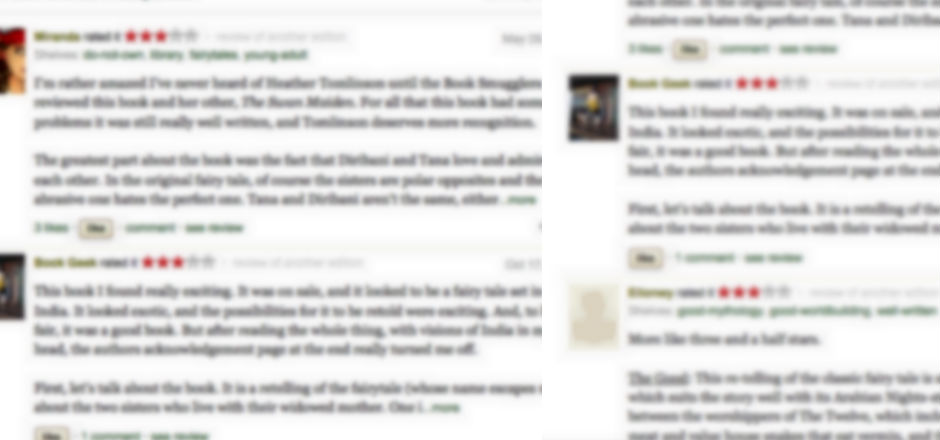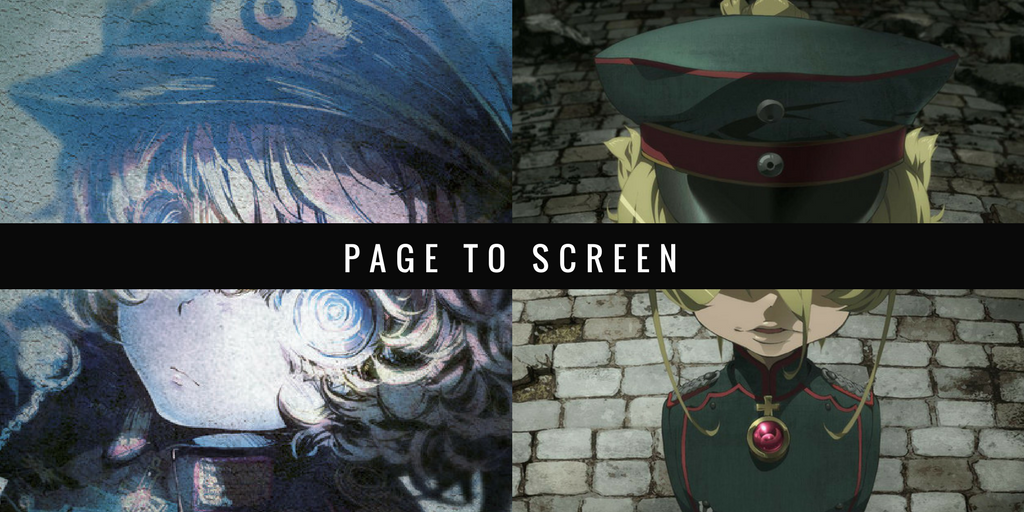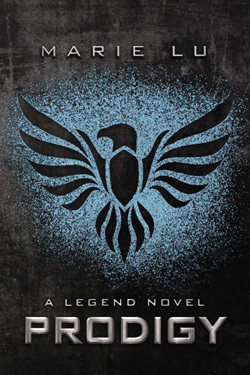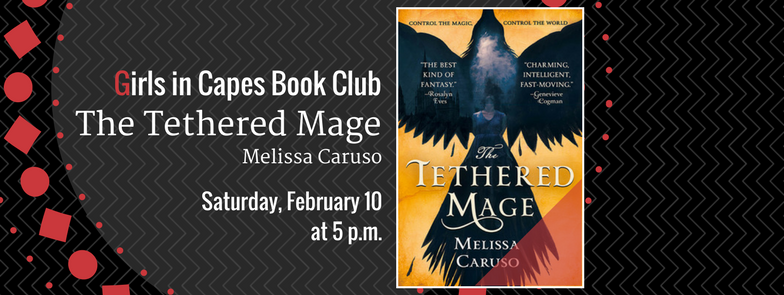More than a decade ago, when I first met Harry, Ron and Hermione and explored alongside them the magical borders of Hogwarts School of Witchcraft and Wizardry, I told my parents that for my birthday I wanted to meet J.K. Rowling. I was promptly, but not unkindly, told that it was impossible. It was inconceivable to me that the means of communications available at that time were a limitation for such purposes.
Several years later, one of my first reviews to go live on the internet was for Laini Taylor’s Daughter of Smoke and Bone. I was a longtime fan of hers and to me she was completely inaccessible and unreachable. But then the impossible happened: she personally thanked me through a tweet for reading her book and for my review, which she called “beautiful”. I was over the moon. One of my all-time favorite authors knew I existed, knew I loved her books and she cared enough about that to personally address me, like it was nothing, like she wasn’t fulfilling a dream of mine.
And she wasn’t the last one. Dozens of authors started to personally address me with tweets, comments and even private messages, thanking me for reviews, recommending books, even asking me to read their books. It was incredible. The people I looked up to and once thought so removed from me now spoke to me like there had never been a rift between us as author and reader.
The impact social networks have had on author-reader communications is immeasurable. Aside from marketing and advertisement advantages, aside from the very fact that without social networks there would be no blogs, no online magazines like this one, the monumental value of the social networks as a bridge between authors and readers is undeniable. Suddenly our idols were just a click away, the distance between us bridged by as little as 140 characters. Readers have been able to get close to the people who inspired them and tell their idols how much their works mean to them, and authors had been allowed the opportunity to personally address the people whose loyalty and love made them who they are.
Sadly, not all the interactions have been exactly positive.
Review requests from an author have quickly turned ugly because of a reader declining the offer. Negative reviews have turned into warzones because someone, often the author, disagreed with what the reviewer had to say about the book. People have been persecuted away from the internet and blogs and profiles have disappeared without a trace, publishers have blacklisted entire communities of readers, and attacks have escalated from mean-spirited jokes to personal insults and even to physical aggressions and stalking.
[blocktext align=”left”]Negative reviews have turned into warzones because someone, often the author, disagreed with what the reviewer had to say about the book.[/blocktext]And all because of that bridge, because traffic always goes in both directions.
The war between authors and reviewers is not exactly new. Since social networks started, particularly sites like Goodreads where readers come together with the sole purpose of discussing books, altercations have always been and always will be unavoidable. But it was during the latter months of 2011 and the beginning of 2012 when the site became a bomb-infested field where the smallest of comments could unleash a war capable of expanding across social networks and even into life away from the internet.
Authors can’t help loving their books: they invested their time, their care and their talent into their creation. But readers are not obligated to love the book. Every author out there must deal with criticism one way or another, and nowadays, like the rest of the world, they have an outlet for it through social networks.
Scrolling back to the first few months of 2012 in Goodreads will reveal hundreds upon hundreds of status updates, messages, comments, screenshots, private emails, links to blog posts, articles, and even interferences from the GR staff that deal with this issue. The year began in a very sour note. To name a few of the most notorious ones:
- One reviewer was called a stupid cow in a private message from an author because she didn’t enjoy the book and discussed at lengths its similarities to Twilight.
- Another one found herself the topic of a series of tweets between an author and her agent in which she was called a stupid hater bitch.
- An entire group of popular YA authors banded together and created the hashtag #goodreadsslogan to complain about the readers that congregated there, calling them everything from a-holes, denizens of a hellhole, career-destroyers, to dicks on a high horse, and even accused the GR community of being worse than the infamous members of 4chan.
Authors started to get more vocal about bad reviews, regardless of whether it was a review for their book or someone else’s, not only on GR and Twitter, but on Facebook, blog posts and Amazon reviews, each more outrageous than the last.
Not long after, the issue turned into a veritable witch-hunt when the site Stop the GR Bullies went live. The site was created by an anonymous group of self-published and indie authors dissatisfied with the GR terms that protected the reviewer’s rights to speak about a book however they wanted, and it was essentially a list of all the GR reviewers, readers and members of Booklikes that were considered “toxic.”

STGRB posed personal information on some reviewers that included physical locations, actual names and addresses, and more.
They took it a frightening step forward by actually stalking and researching the reviewers on their list. Personal information was disclosed about reviewers, from eating habits, sexual relationships, and schedules to real names, addresses, telephone numbers and pictures. The hypocrisy of the site was lost on the members; they persecuted and bullied the people they called bullies. They were entirely biased in favor of authors, always sheltering them and modifying the stories they reported to portray the authors on the best light possible, when most of the authors they protected had long-standing histories of getting personal with reviewers and attempting to ruin them and having fits for any type of negative comment about their works.
Articles in The Huffington Post soon were published about this issue and the whole ordeal became a matter of international attention. The STGRB site was forced to take down the personal content shortly after, and their popularity greatly diminished as the months went on. A note from one of the administrators was published Dec. 3, 2013 which stated that they would leave the site to the public to denounce bullying because the creators’ mission had been completed because of the new terms and conditions Goodreads incorporated to the site, which ignited a war within GR because most reviewers saw it was an attempt to censor the members of the site and coddle the authors’ egos.
This type of behavior left a hideous scar on the face of author-reader communications. Dozens of authors and reviewers alike opted to disappear from the internet and turn their backs on all types of social network communications between writers and readers. But who’s the real victim here? Who’s the villain in this story?
To point a finger solely at the author community would be a biased and unfair mistake. Most people frown upon aiming any type of blame at reviewers, but as a member of GR and front-row witness to the battlefield of 2011-2012 and the fragile truce of 2013, I am one to think that there might be some truth to the idea that some of the blame should be shared. True, most commenting authors weren’t subtle about their outrage about getting a negative review and didn’t hesitate to launch attacks in all directions, but I’ve also witnessed how innocuous comments from any author – and even fellow reviewers – would make reviewers band together and go immediately on the defensive, and I’ve also read reviews that have no other intention but hurting and humiliating the author behind the book.
So, what does this say about it all? Who’s the culprit and who’s the victim? Who is to blame? Who is the villain? The only real villain here is pride, and the only culprit here is whoever allows pride to take the best of them, be it the author who thought loving their book and being proud of it justified attacking anyone who didn’t share his or her love for it, or the reviewer who decided that, to exercise his or her right to speak freely about a book, he or she must also step over everyone else.
Author-reader relationships were severely affected by this awful episode, but as we welcome a new year, reviewers and members of the GR community hope that we can finally move on from it and start a new period where honesty is respected and appreciated, and where we can come together, not to attack and hate and persecute, but to share the love for books that brought us together in the first place.
Lorraine Acevedo Franqui writes for Girl In Capes from Puerto Rico and holds degrees in English Literature and Psychology. Her main interests are young adult lit, anything related to The Legend of Zelda and Kingdom Hearts, assorted shounen mangas and cats.






